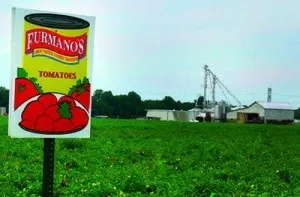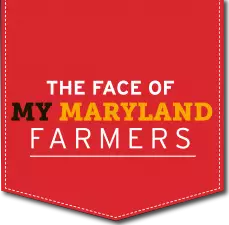 (SUDLERSVILLE, MARYLAND) – Food packaging performs several functions: It protects the food inside, creates convenience and portion control, and perhaps most importantly provides nutritional information and ingredient listings of the food inside.
(SUDLERSVILLE, MARYLAND) – Food packaging performs several functions: It protects the food inside, creates convenience and portion control, and perhaps most importantly provides nutritional information and ingredient listings of the food inside.
Here are four things you should know about your food that you probably won’t find on the label:
- Canned foods might be local foods! Some canned food companies, like Pennsylvania’s Furmano’s, for instance, feature the farmers who grew the food on their labels. Many don’t, instead reserving that space for more food info or recipes. That doesn’t mean the food’s not local, though. Most canners and freezers contract with growers who are nearby so that produce can be harvested at its peak and processed within a day.
- “Organic” is a method of production defined by the National Organic Standards Board. It does not mean that products are “chemical free” or higher quality, or that its growers have a higher commitment to the environment. In fact, conventional farmers across Maryland are committed to practices that are often considered “organic,” including crop rotation, cover crops, soil testing and scouting, which is called Integrated Pest Management or “IPM.” It’s just plain good farming.
- Food safety starts at the farm. Farmers have to maintain certain standards of cleanliness, which may be required under the Food Safety Modernization Act or the contract with the processor. Jennie Schmidt, a farmer in Queen Anne’s County, Md., and her family grow tomatoes for Furmano’s. Their well water is tested for bacteria under their contract, which also stipulates there no shotgun shooting over fields or even nearby. Their fresh-market green bean contract stipulates that fields can’t be within a certain distance of livestock, and that a port-a-john and a way to wash hands are provided for farm help. “Our green beans are literally never touched by human hands,” says Schmidt. “The seed is planted by machine and the beans are harvested by machine. The only exception is possibly when the scout comes by checking for pests or disease.”
- Maryland farmers make substantial contributions to our quality of life, tax base and jobs. According to state records, approximately 350,000 people are employed in some aspect of agriculture, making it the largest commercial industry in Maryland. Agriculture also accounts for about 2 million acres, or roughly 32 percent of total land area of the state.
Hungry for more? Sign up for our (email/blog) and find us on Facebook, Twitter and Instagram.


Interested in products made in Md .
Hi Mary! Thanks for your note and for your interest in Maryland farm products. We recommend visiting http://www.marylandsbest.net to find Maryland foods that are in season and near you. We also like http://www.marylandfma.org!